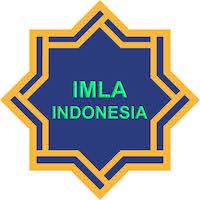Online and Print-Based Translation of Mu'jam Tarjamah: An Analysis of Al-Ma'any Arabic Dictionary and Mahmud Yunus
DOI:
https://doi.org/10.18592/jams.v12i1.15578Keywords:
Translation, Online Dictionary, Print Dictionaries, Al-Ma'any, Mahmud YunusAbstract
Dictionaries are an important tool in Arabic translation and learning. Technological developments have given rise to online-based dictionaries such as al-Ma'any, which provide ease in translating, while printed dictionaries by Mahmud Yunus still hold historical and methodological value. This study employs a qualitative method with a content analysis approach. The purpose of this study is to compare the results of translation analysis and translation quality between the online-based mu'jam al-Ma'any and the Mahmud Yunus printed dictionaries. The results of the study indicate that the quality of a good translation depends on the context and purpose of the translation itself. Consequently, mu'jam al-Ma'any has an advantage in terms of speed of access and diversity of translation results, both in linguistic aspects (grammatical, semantic, and pragmatic) as well as non-linguistic aspects (cultural, social, and situational). In contrast, Mahmud Yunus's dictionary demonstrates a higher level of accuracy and consistency, especially concerning terms that have special meanings in Islam, although the search process takes longer. Both dictionaries possess advantages that complement each other. The al-Ma'any online dictionary is suitable for quick and dynamic needs, while the Mahmud Yunus printed dictionary is more relevant for in-depth study. Combining the two can enhance the quality of Arabic translation.References
Alhafidz, Ahmad Zaki. “Eksistensi Kamus Cetak Bahasa Arab Di Era Digital.” IJAZ ARABI: Journal of Arabic Learning 6, no. 1 (2023): 271-280.
Arifin, Ahmad, and Slamet Mulyani. “Persepsi Mahasiswa Terhadap Penggunaan Kamus Digital Bahasa Arab Di Era Society 5.0.” An Nabighoh 23, no. 2 (2021): 235-250. https://doi.org/10.32332/an-nabighoh.v23i2.4478.
Baker, Mona. In Other Words A Coursebook on Translation. London: Routledge, 2018. https://doi.org/10.4324/9781315619187.
Bowker, Lynne, and Jennifer Pearson. Working with Specialized Language A Practical Guide to Using Corpora. 1st ed. London: Routledge, 2002.
Busro, Muh. “Sejarah Perkamusan Bahasa Arab Di Indonesia.” El-Wasathiya: Jurnal Studi Agama 4, no. 2 (2016): 15-33.
Dian Wulandari. “Budaya Penggunaan Alat Bantu Penerjemahan (Cat Tools) Dalam Proses Menerjemahkan.” Jurnal Sosial Humaniora Dan Pendidikan 2, no. 3 (2023): 66-71. https://doi.org/10.56127/jushpen.v2i3.1089.
Gile, Daniel. Basic Concepts and Models for Interpreter and Translator Training. Amsterdam, Netherland: John Benjamins Publishing Company, 2009.
Hastang. “Efektifitas Kamus Bahasa Arab Berbasis Aplikasi Android Dalam Menerjemahkan Qiraah.” Didaktika Jurnal Kependidikan 11, no. 1 (2019): 112-120. https://doi.org/10.30863/didaktika.v11i1.158.
Ilham, Ramadhan Nur. “Pemanfaatan Kamus Digital Bahasa Arab-Indonesia Sebagai Sumber Belajar Di SMP IT Ibnu Khaldun.” Journal of Educational Research 4, no. 4 (2023): 1932-1942. https://jer.or.id/index.php/jer/article/view/632.
Munday, Jeremy, Sara Ramos Pinto, and Jacob Blakesley. Introducing Translation Studies Theories and Applications. 5th ed. London, New York: Routledge, 2022.
Mustaufiy, Ahmad Syagif Hannany, and Anwar Sadat. “Analisis Preferensi Mahasiswa Terhadap Penggunaan Kamus Dalam Mempelajari Bahasa Arab.” AL-AF’IDAH: Jurnal Pendidikan Bahasa Arab Dan Pengajarannya 4, no. 1 (2020): 1-17.
Mustofa, Muhamad Arif. “Analisis Penggunaan WhatsApp Sebagai Media Pembelajaran Bahasa Arab Di Era Industri 4.0.” Arabiyatuna Jurnal Bahasa Arab 4, no. 2 (2020): 333-346. https://doi.org/10.29240/jba.v4i2.1805.
Nasarudin. “Penggunaan Kamus Dwibahasa Sebagai Sumber Belajar Dalam Penguasaan Kosakata Arab Mahasiswa Fakultas Hukum Universitas Muhammadiyah Mataram.” In Seminar Nasional Penelitian Dan Pengabdian Kepada Masyarakat, 229-240. Bandar Lampung: Universitas Sang Bumi Ruwa Jurai, 2020.
Nathir, Khairul Asyraf Mohd, Mohd Sukki Othman, Wan Muhammad Wan Sulong, and Nik Farhan Nik Mustafa. “Persepsi Pelajar Terhadap Pembelajaran Kosa Kata Bahasa Al- Quran Melalui Aplikasi Almaany Di Dalam Telefon Pintar.” AL-QANATIR International Journal of Islamic Studies 8, no. 1 (2017): 16-28.
Nida, Eugene Albert, and Charles Russell Taber. The Theory and Practice of Translation. Netherlands: BRILL, 2003.
Nurhayati, Nurhayati, Apriyanto Apriyanto, Jabal Ahsan, and Nurul Hidayah. Metodologi Penelitian Kualitatif: Teori Dan Praktik. Jambi: PT. Sonpedia Publishing Indonesia, 2024.
Patton, Michael Quinn. Qualitative Research & Evaluation Methods: Integrating Theory and Practice. United States of America: SAGE Publications, 2014.
Sabirin, Rasyid, and Syaiful Taufik Watabetta. “Aplikasi Kamus Bahasa Arab-Indonesia Dan Indonesia-Arab Berbasis Android.” Jurnal Informatika 7, no. 1 (2017): 7-11.
Siregar, Lisa Rahmadhani, Robby Reyhan Chandra, Sari Annisa Siregar, and Sahkholid Nasution. “Analisis Penggunaan Kamus Online Al-Ma’any Untuk Pengembangan Kosakata Mahasiswa Pendidikan Bahasa Arab Di Universitas Islam Negeri Sumatera Utara Medan.” Edukasi Elita: Jurnal Inovasi Pendidikan 2, no. 1 (2024): 316-333.
Venuti, Lawrence. The Translator’s Invisibility A History of Translation. United Kingdom: Routledge, 2008.
Wahdah, Yuniarti Amalia, Muhajir Muhajir, and Abdurrahman Wahid Abdullah. “Kamus Online Sebagai Media Penerjemahan Teks Bagi Calon Guru Bahasa Arab.” Edukasiana: Jurnal Inovasi Pendidikan 2, no. 3 (2023): 138-150. https://doi.org/10.56916/ejip.v2i3.368.
Wahida, Besse. “Kamus Bahasa Arab Sebagai Sumber Belajar (Kajian Terhadap Penggunaan Kamus Cetak Dan Kamus Digital).” At-Turats Jurnal Pemikiran Pendidikan Islam Journal 11, no. 1 (2017): 58-71.
Yoke Suryadarma, Alinda Zakiyatul Fakhiroh. “Optimalisasi Penggunaan Corpus Linguistics Dalam Penyusunan Kamus Az- Ziro’ah Sebagai Media Pembelajaran Bahasa Arab.” In Isolec, 123-128. Malang: Universitas Negeri Malang, 2020. http://isolec.um.ac.id/proceeding/index.php/issn/article/view/59.
Downloads
Published
Issue
Section
License
Copyright (c) 2025 Nuroh Nuroh

This work is licensed under a Creative Commons Attribution 4.0 International License.
Authors who publish with this journal agree to the following terms:
- Authors retain copyright and grant the journal right of first publication with the work simultaneously licensed under a Creative Commons Attribution License that allows others to share the work with an acknowledgement of the work's authorship and initial publication in this journal.
- Authors are able to enter into separate, additional contractual arrangements for the non-exclusive distribution of the journal's published version of the work (e.g., post it to an institutional repository or publish it in a book), with an acknowledgement of its initial publication in this journal.
- Authors are permitted and encouraged to post their work online (e.g., in institutional repositories or on their website) after the submission process, as it can lead to productive exchanges, as well as earlier and greater citation of published work.






